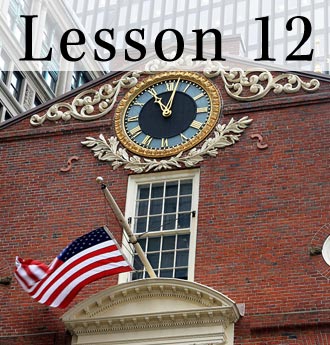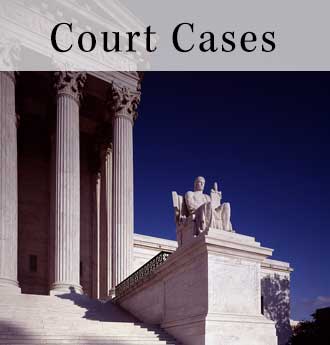Lesson 12: How Did the Delegates Distribute Powers between National and State Governments?
The case summaries below were provided by Oyez and licensed under the Creative Commons Attribution-NonCommercial 4.0 International License. Please visit Oyez.org for more case summaries.
Calder v. Bull (1798)
Facts of the case:
Mr. and Mrs. Caleb Bull, the stated beneficiaries of the will of Norman Morrison, were denied an inheritance by a Connecticut probate court. When the Bulls attempted to appeal the decision more than a year and a half later, they found that a state law prohibited appeals not made within 18 months of the original ruling. The Bulls persuaded the Connecticut legislature to change the restriction, which enabled them to successfully appeal the case. Calder, the initial inheritor of Morrison's estate, took the case to the Supreme Court.
Case Question:
Was the Connecticut legislation a violation of Article I, Section 10, of the Constitution, which prohibits ex post facto laws?
Case Conclusion:
No. In a unanimous decision, the Court held that the legislation was not an ex post facto law. The Court drew a distinction between criminal rights and "private rights," arguing that restrictions against ex post facto laws were not designed to protect citizens' contract rights. Justice Chase noted that while all ex post facto laws are retrospective, all retrospective laws are not necessarily ex post facto. Even "vested" property rights are subject to retroactive laws.
Citation:
The Oyez Project, Calder v. Bull, 3 U.S. 386 (1798)
Link to case: https://www.oyez.org/cases/1789-1850/3us386
Texas v. White (1868)
Facts of the case:
In 1851, Congress authorized the transfer of $10 million worth of United States bonds to the state of Texas. The bonds were payable to the state or bearer and were to be redeemable in 1864. In 1862, during the Civil War, an insurgent Texas legislature authorized the use of the bonds to purchase war supplies. Four years later, the reconstruction government tried to reclaim the bonds.
Case Question:
Was Texas a state in the union eligible to seek redress in the Supreme Court? Could Texas constitutionally reclaim the bonds?
Case Conclusion:
Yes. In a 5-to-3 decision, the Court held that Texas did indeed have the right to bring suit and that individuals such as White had no claim to the bonds in question. The Court held that individual states could not unilaterally secede from the Union and that the acts of the insurgent Texas legislature--even if ratified by a majority of Texans--were "absolutely null." Even during the period of rebellion, however, the Court found that Texas continued to be a state.
Citation:
The Oyez Project, Texas v White, 74 U.S. 700 (1869)
Link to case: https://www.oyez.org/cases/1850-1900/74us700







